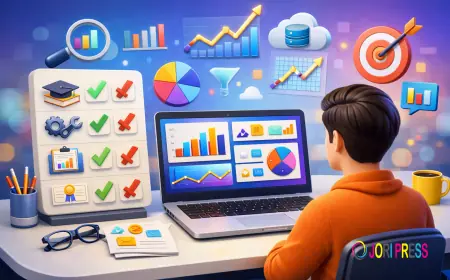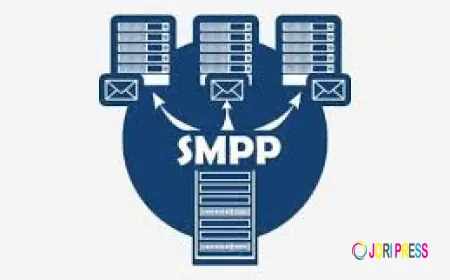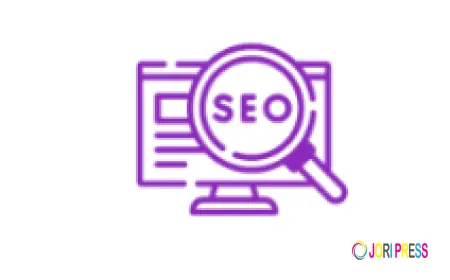How School Management Software Seamlessly Manages the Entire Student Lifecycle?
Discover how School Management Software streamlines every stage of a student’s journey—from admission to alumni—enhancing academics, communication, and administration effortlessly.

Managing the complete lifecycle of a student—from the moment they apply for admission to the day they graduate and become alumni—is no easy task. Traditional administrative systems often fall short, burdened by manual processes, paper-heavy workflows, and disconnected departments. In today’s digital-first education environment, schools need smarter, more agile solutions.
This is where School Management Software comes into play. By centralizing every aspect of school operations, from enrollment to exit, a robust School ERP enables administrators, teachers, students, and parents to stay connected and informed at every stage of the student journey.
Let’s explore how modern School Management Software is revolutionizing the way institutions manage the entire student lifecycle with speed, accuracy, and transparency.
1. Admission and Enrollment: First Impressions Matter
The student lifecycle begins with the admission process—one of the most critical touchpoints for any school. Manual admissions can be time-consuming and error-prone, leading to a poor first impression.
With School ERP systems, schools can offer:
-
Online application forms
-
Digital document submission
-
Automated merit lists and selection criteria
-
Real-time communication with applicants
-
Integration with payment gateways for fee collection
This not only reduces administrative workload but also provides a seamless and professional experience for prospective students and their parents.
2. Academic Planning and Class Scheduling
Once admitted, students need to be assigned to classes, subjects, and teachers. A powerful School Management Software automates timetable generation, subject allotment, and faculty schedules, ensuring minimal conflicts and optimal resource utilization.
Features include:
-
Auto-generated timetables
-
Subject-wise teacher allocation
-
Conflict-free scheduling
-
Integration with online classroom tools for hybrid or remote learning
With the rise of digital learning, integration with an Online Classroom setup allows students to access lessons, assignments, and live sessions right from the ERP dashboard, streamlining both physical and digital learning environments.
3. Attendance and Performance Tracking
Monitoring student attendance and performance is vital throughout their academic journey. The software records daily attendance—either manually or through biometric/RFID systems—and notifies parents instantly via SMS or app notifications.
Academic performance is tracked via:
-
Internal assessments and exam results
-
Automated report card generation
-
Continuous performance tracking dashboards
-
Analytics to identify students needing support
With centralized data, both teachers and parents can collaborate more effectively to help students improve academically.
4. Fee Management and Finance Integration
A student’s financial journey—from tuition fees to activity charges—needs to be managed with precision. Manual methods often result in delays, mismanagement, or missed deadlines.
School Management Software simplifies this with:
-
Customizable fee structures
-
Online payment portals
-
Auto-generated fee receipts and due reminders
-
Financial reporting and audit-ready logs
This not only ensures smoother cash flow but also enhances the transparency of financial transactions between the school and parents.
5. Library and Resource Management
Libraries are an integral part of the student experience. Efficient handling of book inventories, lending, and returns is essential to avoid chaos and delays.
Modern Library Management Software, often integrated within the School ERP, provides:
-
Barcode-based lending and returns
-
Digital catalog browsing
-
Automated reminders for overdue books
-
Online book reservations
Students can easily search, reserve, and borrow books, while librarians manage inventory, issue history, and late fees—all in a single system.
6. Extracurricular Activities and Event Participation
A holistic student lifecycle includes more than just academics. Managing sports, clubs, competitions, and cultural events can be streamlined using the same School ERP system.
The software helps track:
-
Participation and achievements
-
Event registration
-
Scheduling and resource allocation
-
Certificates and awards tracking
By digitizing co-curricular records, schools can provide a well-rounded report of each student's journey.
7. Communication and Parent Engagement
Clear, real-time communication is key to building trust between schools and families. Whether it’s about academic progress, attendance, fees, or announcements, timely updates ensure parents remain informed and involved.
A good School Management Software includes:
-
Parent and student mobile apps
-
Instant notifications and alerts
-
Two-way communication channels
-
Secure access to student records and updates
This leads to better collaboration and transparency between all stakeholders.
8. Exam Management and Result Processing
Managing internal assessments, board exams, or online quizzes can be complex. An integrated School ERP automates this process with:
-
Question bank and exam paper generation
-
Online exams with proctoring support
-
Mark's entry and analysis
-
Digital report cards and performance insights
Integration with online classroom tools allows for real-time assessments and instant feedback, making the evaluation process more dynamic and efficient.
9. Alumni Management and Beyond
The student lifecycle doesn’t end with graduation. Schools increasingly look to maintain relationships with alumni for mentorship programs, donations, and networking.
An effective School ERP helps:
-
Build alumni databases
-
Manage events and reunions
-
Enable donation and fundraising tracking
-
Facilitate professional networking and engagement
This long-term connection adds value to both the institution and its graduates.
Conclusion: Building the Future of Education with Technology
The student lifecycle is a continuous journey of learning, growth, and development. Managing this journey efficiently requires more than just spreadsheets and manual processes. A robust, all-in-one School Management Software ensures every touchpoint—from admission to alumni—is handled with care, accuracy, and transparency.
By integrating modules such as Library Management Software, online classroom, and automated academic tools, a School ERP doesn’t just support administrative staff—it enhances the learning experience for students and strengthens the partnership with parents.
In a world where education is becoming increasingly digital and dynamic, investing in a comprehensive School ERP isn’t just a smart move—it’s essential.
What's Your Reaction?
 Like
0
Like
0
 Dislike
0
Dislike
0
 Love
0
Love
0
 Funny
0
Funny
0
 Angry
0
Angry
0
 Sad
0
Sad
0
 Wow
0
Wow
0











































